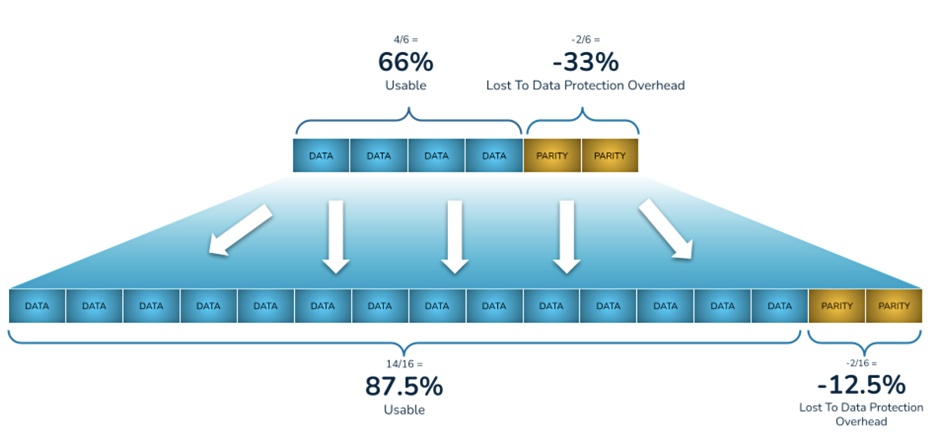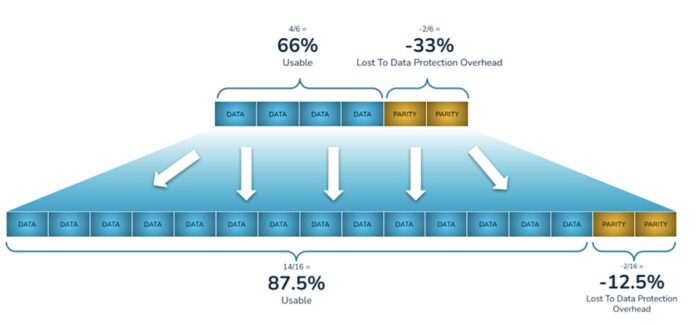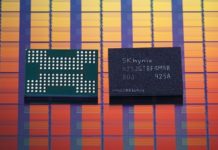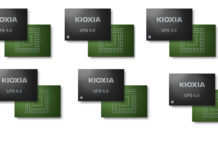Qumulo has introduced non-disruptive upgrades, adjustable protection policies enabling capacity reclamation from large clusters, and HPE Alletra 4110 support.
The scale-out, parallel file system supplier says its Transparent Platform Refresh (TPR) feature enables old to new appliance upgrades with no end-user disruption and no need for a migration exercise. The Adaptive Data Protection (ADP) feature can enable customers to get back hundreds of terabytes of capacity as their cluster grows, and so save cash.
Ryan Farris, Qumulo’s VP of product, provided the announcement statement: “With more platform options and capabilities to boost efficiency and simplify refreshes at scale, our customers can ensure their end-users and workloads are fully supported even in a turbulent macroeconomic environment.”

Qumulo senior product marketing manager Aaron Oshita blogged about TRP, writing: “Platform refreshes with Qumulo are now as simple as: set a plan, add new nodes, remove old nodes, and you’re done! Your data effortlessly ‘glides’ over to your new appliances.”
ADP is based around better use of Qumulo’s existing erasure coding through users being able to adjust the settings. Larger clusters can stripe data across more nodes and, as a consequence, need proportionally less overhead space set aside.
A six-node cluster could lose two nodes to erasure coding parity overhead, whereas a 16-node cluster might still only need two. Oshita writes: “The cluster would still be protected against multiple concurrent disk or node failures, and the customer would have effectively expanded their cluster’s usable capacity by 21 percent.”

HPE’s Alletra 4000 is the rebranded Apollo 4000 server line. The two latest 4000s – the 4110 and 4120 – both have Gen-4 Xeon Sapphire Rapids processors and PCIe 5 connectivity. Qumulo says its supported Alletra 4110 is highly performant and good for AI, machine learning and other workloads needing a powerful server.
It is the first Qumulo-certified product with Enterprise and Data Center Standard Form Factor (EDSFF) NVMe flash drives. These, it claims, have significant space and thermal efficiency advantages over M.2 (gumstick) and U.2 (2.5-inch) format SSDs.








